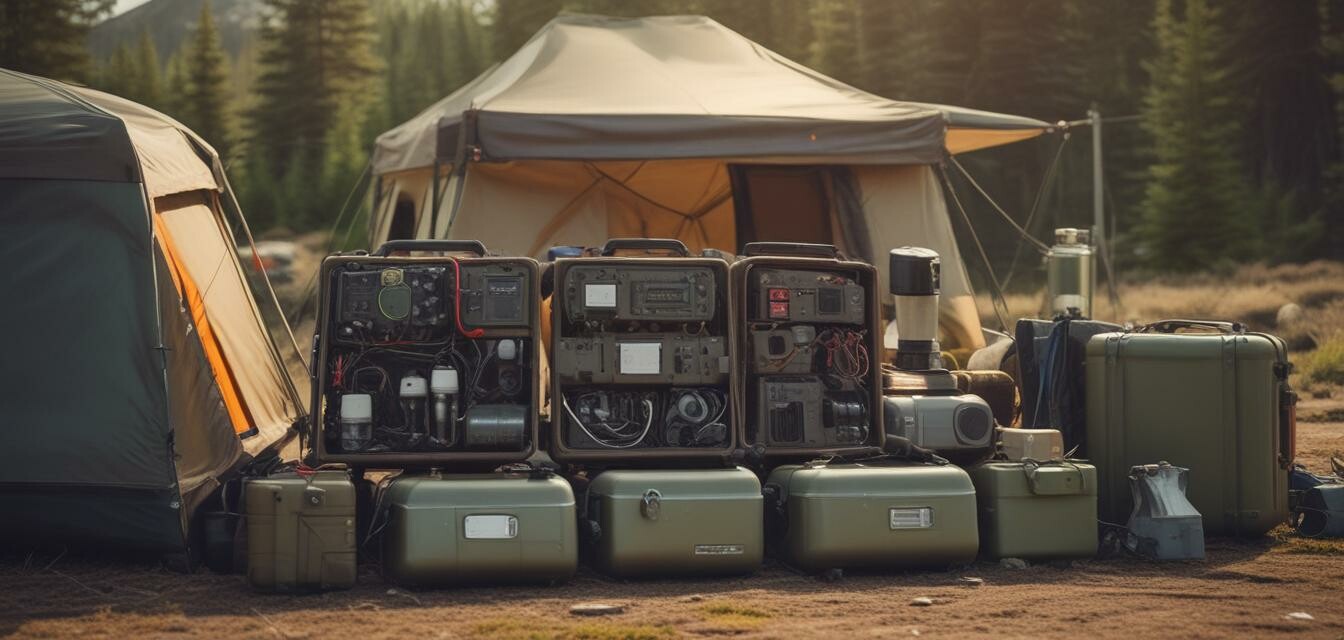
Setting Up Your Portable Power Station for a Trip
Key Takeaways
- Always charge your power station fully before your trip.
- Know your power needs for all devices you plan to use.
- Have multiple charging options available, especially solar panels.
- Check the portability of your power station for easy transport.
- Understand the safety precautions for using your power station outdoors.
Planning an outdoor trip can be an exciting adventure but also requires careful preparation. One of the key components of your travel gear should be a portable power station. This guide will walk you through the process of setting up your portable power station before heading out, ensuring that your devices stay charged and ready for use.
Step-by-step instructions for setup
1. Gather your equipment
Before anything else, collect all the necessary equipment. Here's a quick checklist:
- Portable Power Station
- Charging cables
- Devices you plan to power (phones, laptops, cameras, etc.)
- Solar panels (if applicable)
- Multimeter (optional for checking battery levels)
2. Fully charge your power station
Your portable power station must be fully charged before your trip. Most power stations come with a charging adapter that can be plugged into a standard wall outlet. Here's how to do it:
- Connect the charger to the power station and a wall outlet.
- Look for indicator lights that show the charging process.
- Wait until the device is fully charged (check the manual for specifics).
3. Calculate power needs
Understanding how much power you need for your devices is crucial. Here’s how to calculate:
| Device | Wattage | Estimated Usage Time (hours) |
|---|---|---|
| Smartphone | 15W | 10 hours |
| Laptop | 50W | 5 hours |
| Camera | 10W | 20 hours |
Make sure your power station can accommodate the total wattage you plan to use.
4. Charging options
There are several ways to recharge your portable power station while you're on your trip:
- Wall Charger: Ideal for initial charging at home.
- Car Charger: Great for road trips; ensure you have a 12V socket.
- Solar Panel: Eco-friendly option for long camping trips; check for solar compatibility in your model.
5. Carrying your power station
Portability is essential when using a power station outdoors. Here are tips to consider:
- Look for ergonomic handles or a carrying case.
- Ensure the weight is manageable for your specific trip.
- Secure cables and devices in your backpack to prevent damage.
Safety precautions to follow
Always prioritize safety when using a portable power station. Here are some important points to remember:
- Keep the power station away from moisture or direct sunlight.
- Utilize the built-in protection features to avoid overheating.
- Never exceed the maximum wattage output of your portable power station.
Further Resources
For more information on effectively using your portable power station and getting the most out of it, check out our Buying Guides and Camping and Outdoor Gear sections.
Tips for maximizing battery life
- Avoid full discharges; recharge your power station when it reaches 20% battery.
- Store your power station in a cool, dry place when not in use.
- Use energy-efficient devices to extend usage time.
Pros
- Easy to transport for outdoor adventures.
- Multiple device compatibility.
- Environmentally friendly option when using solar.
- Quiet operation compared to traditional generators.
Cons
- Limited power output for larger devices.
- Can be expensive depending on capacity.
- Charging time can be lengthy for large-capacity models.
Conclusion
A portable power station can be a game-changer for your outdoor trips, providing steady, reliable power when you need it the most. By following these detailed steps, not only can you ensure your setup is perfect, but you can also fully enjoy your adventure without the worry of dead batteries. Plan ahead, understand your needs, and feel empowered to enjoy the great outdoors.

